
Chemotherapy, just like vaccines, is at best a dubious medical “treatment,” with extremely low positive outcomes for patients, all while poisoning both healthy and cancerous cells alike, and greatly shortening lifespans…
…with the Modified mRNA “vaccine” uptake plummeting, and the entire vaccine schedule increasingly shunned by a rapidly awakening populace, cancer “treatment” now represents the last remaining cash cow for the Medical Industrial Complex, and chemotherapy is one of the highest profit margin procedures in the history of allopathic medicine.
Even the corrupt cancer charities are milking this VAIDS-induced turbo cancer outbreak…
BREAKING: American Cancer Society Projects Cancer Diagnoses To Exceed 2 Million Cases For First Time Ever In 2024
The turbo cancer epidemic coincided with the rollout of the slow kill bioweapon “vaccines.” That trend is only becoming more horrifying. The American Cancer Society are now projecting over 611,000 deaths from cancer, with more than 1,600 deaths per day.
Just like with vaccines, chemotherapy is all risk without any reward.
Drug companies, cancer charities and doctors recommend chemotherapy because there is big money in it. The least forgivable of these are the cancer charities which exist to protect people but which seem to me to be ruthless exploiters of patients.
As always the medical literature is confusing but in the Annals of Oncology I found this: ‘the upfront use of chemotherapy does not seem to influence the overall outcome of the disease’.
Most doctors won’t tell you this, or even admit it to themselves, but cancer drugs are killing up to 50% of patients in some hospitals. A study by Public Health England and Cancer Research UK, which was published in The Lancet, found that 2.4% of breast cancer patients die within a month of starting chemotherapy. The figures are even worse for patients with lung cancer where 8.4% of patients die within a month when treated with chemotherapy. When patients die that quickly, I feel that it is safe to assume that they were killed by the treatment not the disease. At one hospital, the death rate for patients with lung cancer treated with chemotherapy was reported at over 50%. The one month mortality rate in one group of teaching hospitals was 28% for patients receiving palliative care for lung cancer. One in five breast cancer patients in another group of hospitals died from their treatment. Naturally, all the hospitals which took part in the study insisted that chemotherapy prescribing was being done safely. If we accept this then we must also question the validity of chemotherapy. The study showed that the figures are particularly bad for patients who are in poor general health when they start treatment. The problem, of course, is that chemotherapy does not differentiate between healthy cells and cancerous cells, and the cell-destroying properties of chemotherapy can be lethal. One senior oncologist said: ‘I think it’s important to make patients aware that there are potentially life threatening downsides to chemotherapy. And doctors should be more careful about who they treat with chemotherapy.’ Sadly, I fear that most doctors do not share full details of the risks associated with chemotherapy, and a good number of patients take chemotherapy thinking that the only downside will be a short-term loss of their hair. This in truth is the least of the problems associated with these drugs.
A study published in JAMA Oncology studied the use of chemotherapy among 312 terminally ill cancer patients. All 312 patients had been given no more than six months to live by their doctors and all had at least one, and in some cases multiple rounds of chemotherapy, which had failed. Their tumours had, despite the chemotherapy, spread to other parts of their body. And yet half of these patients were on chemotherapy, despite its obvious ineffectiveness. The analysis published in JAMA Oncology showed that these patients were worse off than if they hadn’t had treatment. Their quality of life was less than it would have been without chemotherapy. The patients on chemotherapy were less able to walk, take care of themselves and stay active than the patients not taking chemotherapy. Most surprising was the fact that the patients who were feeling the best at the start of their chemotherapy were the ones who ended up feeling the worst; they were the ones who suffered the most. The chemotherapy consequences for those patients had been to make their lives worse without any benefit.
Other studies have shown the same thing. Chemotherapy in terminally ill patients is essentially ineffective. Any tumour shrinkage (a rare occurrence) was not linked to a longer life.
As a result of all this research, the American Society of Clinical Oncologists has advised doctors to be more judicious with their chemotherapy use in terminal patients. The group’s guidelines recommend limiting the use of chemotherapy to relatively healthy patients who can withstand the toxic effects and, hopefully, overcome the awful side effects.
The sad thing is that many cancer patients still believe that more and more rounds of chemotherapy will be of benefit to them. The truth is that patients with end stage cancer who are still relatively healthy will be made weaker by chemotherapy and will spend much of their remaining time travelling to and from hospital. It really is vital that patients be informed about the real risks of chemotherapy and that they should be involved in making decisions about their treatment. Chemotherapy is so toxic that the chances of a patient surviving treatment depend a good deal on their age and general well-being. Patients who are seriously ill are, it seems, more likely to die as a result of chemotherapy. (There is no little irony in the fact that many patients with cancer simply aren’t fit enough to be treated with chemotherapy. And, of course, the people who don’t have cancer don’t need it.)
In America, huge numbers of patients are forced to undergo chemotherapy at the State’s behest, even when patients and relatives object. So, for example, a 17-year-old diagnosed with Hodgkin lymphoma decided to seek alternatives to chemotherapy but her doctors were so convinced by the Big Pharma propaganda that they contacted family services who kidnapped the young adult and had her placed in foster care. She was only allowed to go home once she had agreed to have the chemotherapy, though she ran away. The Supreme Court in the US ruled that the State was in the right and had the authority to kidnap the patient, force her into treatment against her will and deny her contact with her family.
Next think about this.
In the UK, the National Health Service publishes comprehensive guidelines on what must be done if chemotherapy drugs are spilt. There are crisis emergency procedures to be followed if chemotherapy drugs fall on the floor. And yet these drugs are put into people’s bodies. And residues of these dangerous chemicals are excreted in urine and then end up in the drinking water supply. (I explained several decades ago in my books Meat causes Cancer and Superbody how prescription drug residues end up in our drinking water.)
It is hardly surprising that many patients being treated with chemotherapy report that their quality of life has plummeted.
The standard oncology approach to cancer is to give chemotherapy and then wait and see if the cancer returns. If it does then more chemotherapy is prescribed. The tragedy is that for so many patients chemotherapy will do more harm than good. Astonishingly, a quarter of cancer patients die of heart attacks – often triggered by deep vein thrombosis and by emboli and brought on by the physical stress of chemotherapy. But these deaths are not included in the official statistics – either for cancer or, just as importantly, for chemotherapy. It is no exaggeration to say that the establishment fiddles the figures to suit its own largely commercial ends – extolling the virtues of drug company products at every opportunity and never failing to throw doubt on any remedy which might threaten the huge cancer industry.
Here’s another thing you might not know.
During the lockdowns and concerns about covid-19, patients who were on chemotherapy were taken off their treatment. They were told that since their treatment would affect their immune systems they would be more vulnerable to the coronavirus. That’s an important admission because the one thing we know for certain is that a healthy immune system is vital for fighting cancer.
Doctors probably won’t tell you any of this but they won’t deny it because it is all true.
The bottom line is that treatments described in clinical trials, paid for by drug companies and generally reviewed by doctors with drug company links, and then published in medical journals which accept huge amounts of drug company advertising, are the only treatments the medical profession accepts. There is much talk about ‘peer review’ trials but all this means is that another doctor or two, with drug company links, will have looked at the paper and given it their approval.
The word ‘corrupt’ doesn’t come close to describing this whole incestuous system.
Anyone who wants to have chemotherapy should have it. I’m not trying to dissuade anyone from using whatever drugs they believe might help them. I’m only interested in providing unbiased, independent information which might help patients make the right decision for themselves.
But too often, I fear, patients beg for treatment, completely understandably, because they want something to be done and because they have been misled by the drug company inspired, and paid for, hype about chemotherapy. And doctors provide that treatment, even though a little research would tell them that they may be doing more harm than good. There are a very few cancers which can be treated well with chemotherapy – but they are very few and they are unfairly and unreasonably promoted as success stories by the drug companies and their shills.
The thing that is forgotten or ignored is that chemotherapy can badly damage the patient’s body’s own protections – and with some patients may, therefore, do infinitely more harm than good.
Every patient should decide for themselves – and discuss with their doctors the evidence for and against chemotherapy in their situation. But I think that all patients are entitled to be provided with the background information they would need to help that process of assessment.
Tragically, however, the ignorance about chemotherapy is, sadly, widespread and all pervasive.
How many women with breast cancer realise that their survival chances might be better if they took daily aspirin and avoided dairy products than if they accepted chemotherapy?
Doctors don’t tell them that because they have, as a profession, been bought by the pharmaceutical industry.
From time to time there are news stories in the papers about women who say ‘No, thank you’ when offered chemotherapy. The response from the medical profession, the media and the public is inevitably critical, and often abusive. When one young mother refused chemotherapy, doctors at the hospital which was supposedly caring for her refused to operate on her or provide her with any other care.
I remember one recent story about another young woman who refused chemotherapy and was told by her local hospital that if she didn’t have chemotherapy then she couldn’t have surgery. So the young woman gave up meat and she and her husband spent all their savings (a total of £70,000) on trying a variety of alternative treatments – none of which worked. The young woman is now dead, leaving behind a penniless husband and a young daughter. What astonished me was the nature of the heartless comments on the internet. They were, without exception, sneery and critical and naturally most of them were anonymous. None understood or even cared about the pain the poor woman and her family were going through – and I suspect that few if any of the comments were from critics who had studied the advantages and disadvantages of chemotherapy. I wonder how many of those who scoffed know that chemotherapy designed for the treatment of cancer, is an attempt to poison cancer cells which grow rapidly. However, it also destroys healthy cells in the bone marrow and can damage all the organs of the body. Chemotherapy often kills more people than it saves. How many of those who defend chemotherapy know that chemotherapy can seriously damage the immune system – thereby making the patient very vulnerable to infection. And I wonder how many of those know-it-alls understand that chemotherapy can cause cancer cells to mutate and become more resistant and difficult to destroy.
Brave individuals who stand up to those who are pushing chemotherapy are often accused of ignorance or cowardice when in reality the opposite is true. It takes real strength of mind to stand up to doctors, nurses, relatives and friends who insist (usually because they’ve never bothered to do any research) that chemotherapy is safe and effective. It is sometimes said that those who reject chemotherapy do so because they are frightened of losing their hair. This is hideously insulting. Hair grows back, and I very much doubt if more than a tiny number of people reject chemotherapy because they are worried about hair loss. (Incidentally, supporters of chemotherapy might like to ask themselves which invisible cells are being damaged at the same time as hair cells are suffering. Hair loss is merely a superficial, observable sign of the damage that is being done and which is largely invisible.)
In September 2024, a former model called Elle Macpherson revealed that seven years earlier she had refused to undergo chemotherapy for breast cancer despite the advice of 32 doctors. When she revealed this news she was in ‘clinical remission’.
‘Saying ‘No’ to standard medical solutions was the hardest thing I’ve ever done in my life,’ she said. ‘But saying no to my own inner sense would have been even harder.’
Inevitably, the mainstream media reporting of Miss Macpherson’s decision was often accompanied by articles written in support of chemotherapy. ‘It goes without saying that if you are diagnosed with cancer, it is wise to stick to medical advice,’ said a journalist (without medical qualifications) in The Times of London. Fair enough. But what if the medical advice is wrong?
You may read Part One HERE.
Just Say NO to chemotherapy and vaccines.
But there is hope, because inexpensive repurposed drugs like Fenbendazole and Ivermectin do cure cancer without any negative side effect, especially if used synergistically.
Ever since the C19 slow kill bioweapon “vaccine” rollout, the world has been witnessing a staggering turbo cancer epidemic, which is precisely why the Medical Industrial Complex and BigPharma do NOT want anyone discovering that there already exists an inexpensive repurposed drug treatment approach that may very well represent the ‘holy grail’ cancer cure in plain sight:
New & Improved Synergistic Joe Tippens Protocol
Tocotrienol and Tocopherol forms (all 8) of Vitamin E (400-800mg per day, 7 days a week). A product called Gamma E by Life Extension or Perfect E are both great.
Bio-Available Curcumin (600mg per day, 2 pills per day 7 days a week). A product called Theracurmin HP by Integrative Therapeutics is bioavailable.
Vitamin D (62.5 mcg [2500 IU] seven days a week).
CBD oil (1-2 droppers full [equal to 167 to 334 mg per day] under the tongue, 7 days a week) CBD-X: The most potent full spectrum organic CBD oil, with 5,000 milligrams of activated cannabinoids and hemp compounds CBD, CBN & CBG per serving.
Fenbendazole (300mg, 6 days a week) or in the case of severe turbo cancers up to 1 gram
Ivermectin (24mg, 7 days a week) or in the case of severe turbo cancers up to 2mg/kg/day
VIR-X immune support (2 capsules per day)
Removing sugars and carbohydrates (cancer food) from your diet and replacing table sugar with a zero glycemic index, zero calorie, keto friendly rare sugar like FLAV-X
Please use code JUSTICE20 to receive an additional 20% OFF on not just the Nobel Prize winning miracle compound Ivermectin, but also on the no less miraculous Fenbendazole, Doxycycline, the full spectrum organic CBD oil containing 5,000 milligrams of activated cannabinoids and hemp compounds CBD, CBN & CBG, the powerful immune support nutraceutical and spike support formula VIR-X, and the healthy sugar alternative FLAV-X!
Upon adding products to your cart, please go to the cart icon at the top right corner of your browser page and click it, then choose the VIEW CART option whereby you will be redirected to a page where you can enter the code JUSTICE20 in the Use Coupon Code field.
Sale ends Sunday, April 13th (midnight eastern time), 2025.
Please contact the company directly with any product questions: info@virex.health
Do NOT comply.


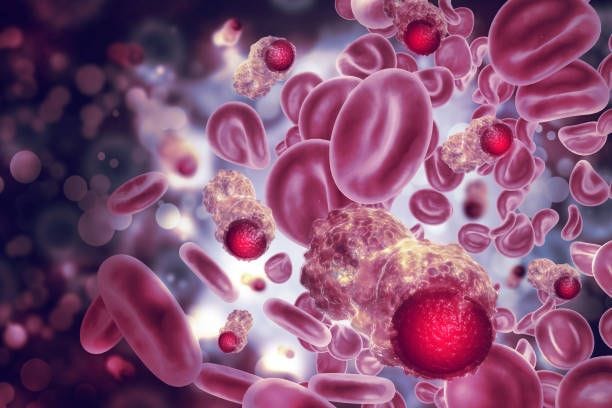
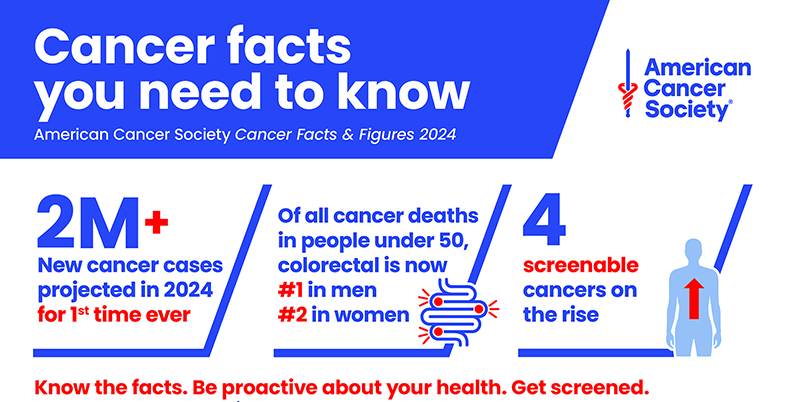
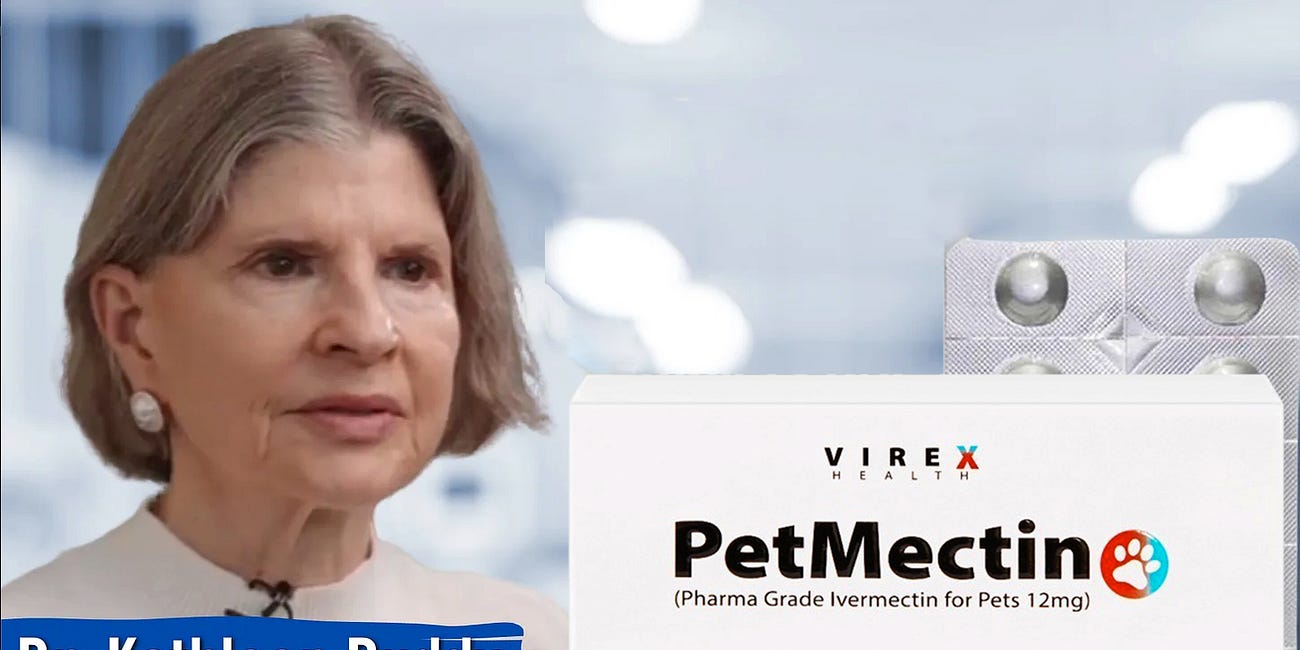

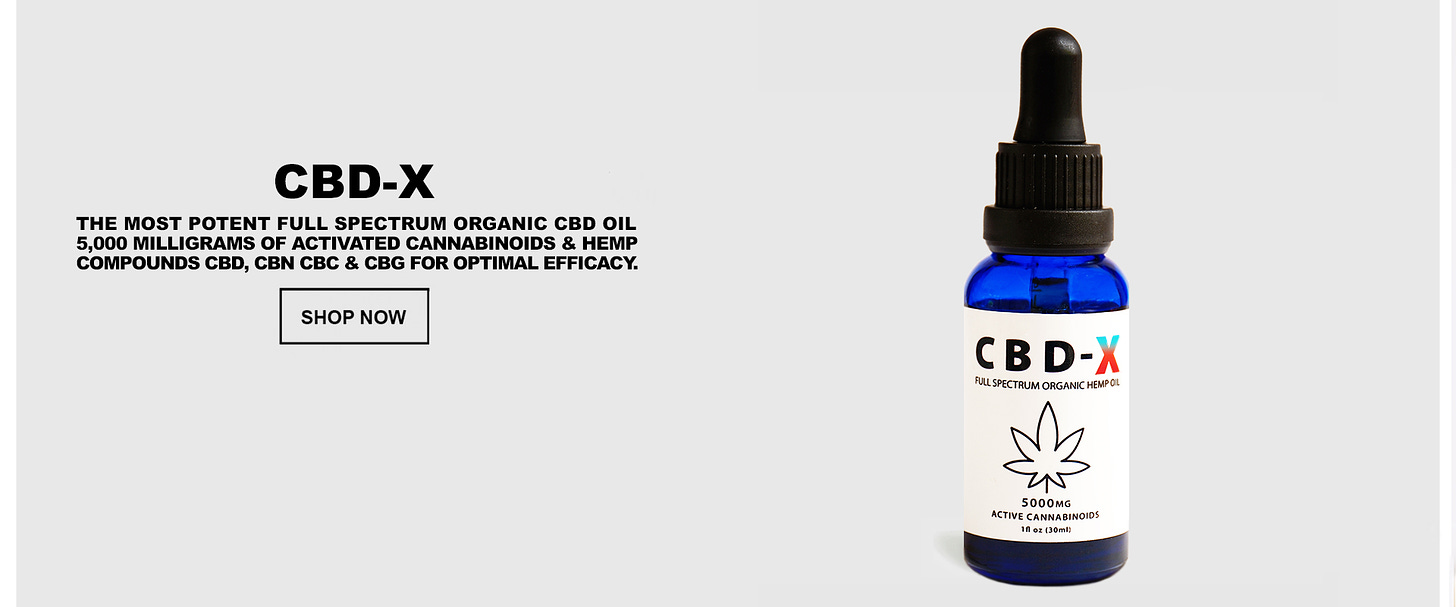


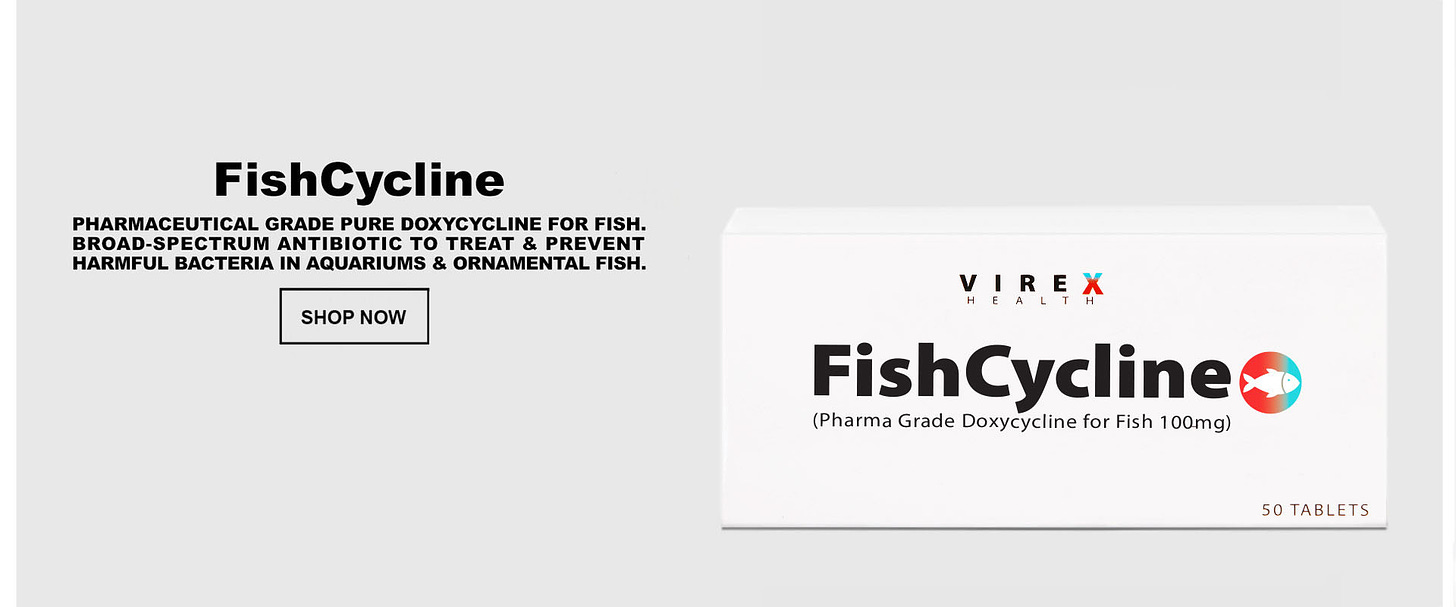






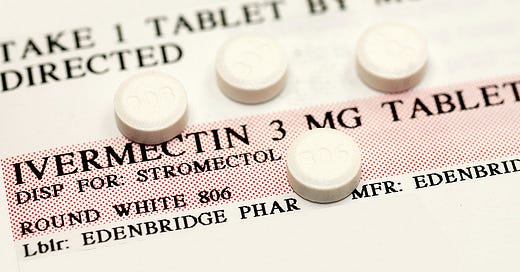



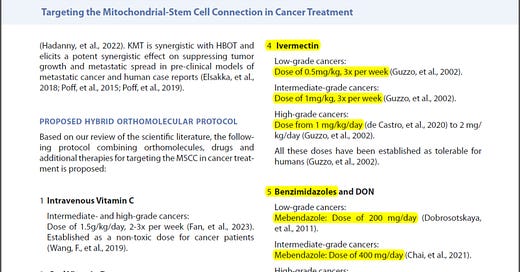

People have come forward over the last century with many treatments that should have been tested in double blind true placebo peer reviewed control studies against the surgery, radiation and chemo big pharma treatments.
Why not test Dr. William Makis targeted cancer treatment in such a study? Why does the Canadian government not do that, but instead tries to fine Dr. Makis and put him in jail?
What about Dr. Akbar Khan and his dichloracetate or DCA cancer treatment? Was it welcomed by the powers to be? Speaking of hair loss during chemo, why not do a double blind true placebo peer review control study test of Dr. Khan's SEF chemo treatment so cancer patients DON'T LOSE THEIR HAIR DURING CHEMO?
What about Professor Angus Dalgleish cancer immunotherapy (t-cell boosting) treatment? Was that ever properly tested?
Or Hoxsey cancer treatment?
Or Rene Caisse herbal essaic tea protocol?
Simoncini sodium bicarbonate cancer treatment ever been properly tested?
What about Stanislaw Burzynski cancer treatment?
The Rife machine?
AOH 1996 cancer pill (Dr. Sermed Mezher)?
There is treatments that should be tested, but I don't have time to write it all now. KENNEDY, CAN YOU HEAR ME?
How many others have come forward with better treatment with higher cure rates than cut, burn and poison but only to be taken down by the powers that should not ever have been?
Why do they hire people like Morris Fishbein or Stephen Barret to take down promising cancer treatments rather than study them against big pharma treatments? Could it be $$$$$$$$$$$$$$$$$$?
For at least the last 40 years oncologists have been asked in numerous surveys if they would take the chemotherapy that they are all too happy to shove into the veins of those they prey upon and the answer of over 70% of them all down those years has been a resounding No!
Now clearly many of those who said "Yes" have lied because they would think answering "No" may come back to haunt them and cause them problems with their employers so you can bet the real figure is much greater than 80%.
If it isn't a good idea for them it isn't a good idea for you.